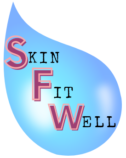Experiencing constant breakouts is a sign that an internal bodily process needs improvement in order to regulate external processes in the skin.
Table of Contents
Zinc In Your Diet
It is no news that your diet affects the way you think, feel, and look.
Zinc is an essential nutrient that plays a role in keeping the body functioning.
Zinc deficiency can cause issues in the skin, gastrointestinal tract, immune system, and reproductive system (1).
Low zinc levels in the body can slow wound healing.
It may also interfere with metabolic processes, leading to obesity and insulin resistance (1).
Other infectious diseases could result if the body does not receive enough zinc through diet.
The Role of Zinc In Acne and Skin Conditions
When it comes to the skin, zinc plays a role in maintaining the skin barrier.
Skin conditions like skin ulcers have been shown to become apparent in children with zinc deficiency (1).
Studies have shown that individuals suffering from acne have lower levels of zinc in their blood (2).
What Can Zinc Do For Your Skin?
Zinc has been shown to be effective against a variety of skin conditions ranging from mild to more serious conditions.
Serious conditions like leprosy and skin warts have shown to be improved with supplemental zinc (3).
More common skin conditions such as acne, rosacea, and eczema have shown improvement in patients who were supplemented with zinc (3).
With these common conditions, it is notable that they each stem from inflammatory issues within the body.
Many people turn to antibiotics to clear their skin, but end up developing resistant bacterial strains to these treatments.
The use of zinc may be a way to combat bacterial resistant strains and improve acne.
How to Use Zinc For Acne?
Zinc can be used both topically and orally.
Topical forms of zinc include creams and serums that are available over the counter.
Zinc can also be taken orally in the form of tablets.
These are also available over the counter.
There are different types of zinc.
Zinc sulfate, when taken orally, has been shown to improve severe cases of acne (3).
Zinc gluconate, when taken orally, has also been shown to reduce the inflammation associated with acne (3).
These forms of zinc, and other available zinc supplements need to be chelated in order to be consumed.
What Is Chelated Zinc?
Chelated zinc is zinc that has undergone a process in which it makes it more bioavailable to the body.
It is a process in which compounds are added to the zinc to bind metal ions and form ring structures called “chelates” (4).
Again, this allows the zinc to be easily absorbed by the body and therefore more likely to have an effect on bodily ailments such as acne and other inflammatory issues.
What Zinc Is Biologically Compatible?
Now that we know what chelated zinc is, we can delve into the topic of the different kinds of zinc supplements available over the counter.
Zinc Sulfate
In a study involving 10 individuals given different forms of zinc, zinc sulfate was shown to have a greater effect on the body in comparison to zinc alone (5).
Therefore, the zinc concentrations in the blood were higher when zinc sulfate was taken.
Zinc sulfate has been shown in another study to improve pustules over a 12-week period (6).
Other types of chelated zinc have been shown to be easily absorbed by the body and have beneficial effects. One type is zinc picolinate.
What is Zinc Picolinate?
Picolinic acid is an organic substance that is white in colour.
Zinc picolinate is the result of joining zinc with picolinic acid.
How Can Zinc Picolinate Improve Acne?
Picolinic acid has been shown to reduce the appearance of acne when applied topically (7).
It has the ability to inhibit the growth of Propionibacterium acnes bacteria (now known as Cutibacterium acnes) (7).
This acne-causing bacteria is one of the factors that contribute to inflammatory pustules. Reduction of these bacteria can improve the appearance of acne.
In a study investigating the absorption of various types of chelated zinc, multiple groups of participants consumed either zinc citrate, zinc gluconate, or zinc picolinate (8).
After a four week period, zinc levels were measured in the hair, urine, and blood.
The result? The participants that consumed zinc picolinate experienced the highest increase in zinc concentration in the areas measured (8).
In conclusion, zinc picolinate is the best form of zinc to be adequately absorbed by the body and promote the most improvement in your acne condition.
References
- Roohani N, Hurrell R, Kelishadi R, Schulin R. Zinc and its importance for human health: An integrative review. J Res Med Sci. 2013 Feb;18(2):144-57. PMID: 23914218; PMCID: PMC3724376.
- https://onlinelibrary.wiley.com/doi/10.1111/dth.14252
- Gupta M, Mahajan VK, Mehta KS, Chauhan PS. Zinc therapy in dermatology: a review. Dermatol Res Pract. 2014;2014:709152. doi: 10.1155/2014/709152. Epub 2014 Jul 10. PMID: 25120566; PMCID: PMC4120804.
- Flora SJ, Pachauri V. Chelation in metal intoxication. Int J Environ Res Public Health. 2010 Jul;7(7):2745-88. doi: 10.3390/ijerph7072745. Epub 2010 Jun 28. PMID: 20717537; PMCID: PMC2922724.
- Solomons, N., Romero-Abal, ME., Weiss, G. et al. Bioavailability of zinc from NutriSet zinc tablets compared with aqueous zinc sulfate. Eur J Clin Nutr 65, 125–131 (2011).
- Weimar VM, Puhl SC, Smith WH, tenBroeke JE. Zinc sulfate in acne vulgaris. Arch Dermatol. 1978 Dec;114(12):1776-8. PMID: 153730.
- https://patentscope.wipo.int/search/en/detail.jsf?docId=WO2005105085
- Barrie SA, Wright JV, Pizzorno JE, Kutter E, Barron PC. Comparative absorption of zinc picolinate, zinc citrate and zinc gluconate in humans. Agents Actions. 1987 Jun;21(1-2):223-8. doi: 10.1007/BF01974946. PMID: 3630857.

